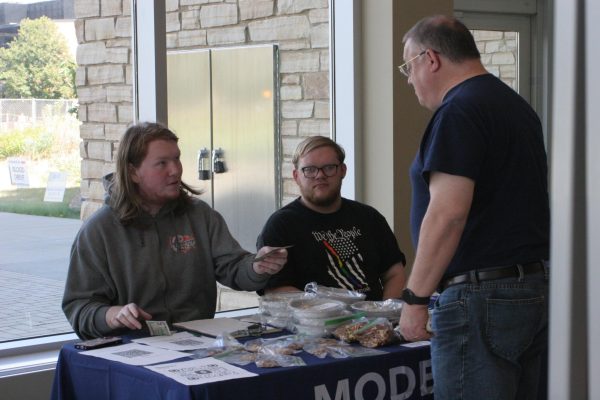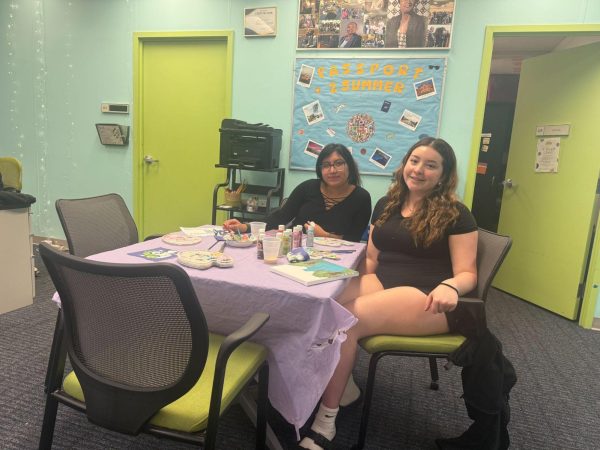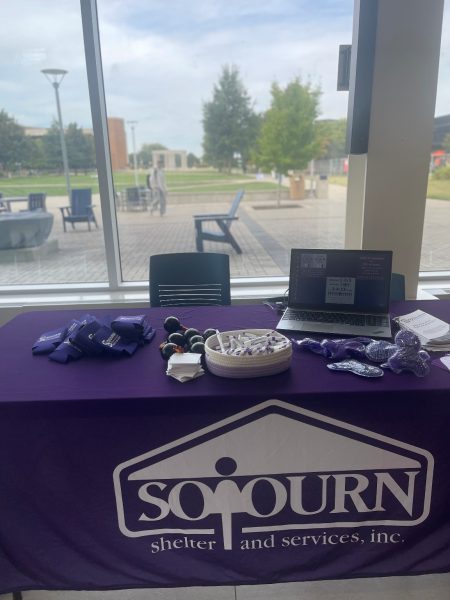Prairie Stars on the Move: Alicia Madden Fights to Save Campus Cats
Alicia Madden is a Junior communications major on the campus of UIS. She has been an advocate for animal rights since 2015 when she was forced to drown a beetle and watched it suffer for 20 minutes in order to prepare it for dissection. Since then, she has joined PETA and formed the UIS organization “Loud for Animals”. This is an organization dedicated to develop a campus community that cares for and advocates for the animals on campus. She believes that animals deserve the same level of compassion that humans hold for each other.
As many on the campus know, there is currently an ongoing battle about the treatment of the Campus Cat population. The administration has a policy of capturing the cats and taking them to animal control, where most are eventually euthanized, citing campus safety and vermin as reasons. The vast majority of the student body on campus feels that this policy is extreme, and the old policy of TNVR, or trap, neuter, vaccinate, and release is preferred. Alicia Madden is trying to turn this general sentiment into a general movement.
There has been a population of cats living outdoors on the campus of the University of Illinois at Springfield for as long as it has existed, and during this time there has not been a single case of a cat hurting anyone or infecting anyone with disease, yet these are the reasons that are cited for needing to eliminate the cat population. Many of the cats currently on campus are vaccinated and neutered due to past efforts. Alicia pointed out that cats are territorial, and that removing the vaccinated cats does nothing except create empty territory that new, unvaccinated cats will move in to. These cats will be taken off to animal control to be killed as well, and the cycle of unvaccinated cats continues, the problem only becomes worse, and a conveyer belt of death is created by the administration.
The administration says that the TNVR campaigns do not work, but Alicia says this is not true. There are many instances where TNVR works. In Alachua County, FL, sterilization decreased shelter intake by 61%. A program in Arizona ended with a 66% reduction of euthanasia over the course of 8 years. The feral cat population at the Atlantic City boardwalk dropped by 70% in three years. Time and time again TNVR is shown to work as long as at least 70% of the cats are sterilized. Sending cats to animal control makes it impossible to ever reach this number, as the campus will constantly see new, unsterilized cats live on its grounds.
On the night of September 20, she wrote a protest message in chalk that stated that the University is both exploiting exotic animals (the koi fish on campus), and harming the cats on campus. By the next day the message was washed off. The weather that night was cloudless, so it was obviously removed intentionally. She also issued a petition that garnered over 200 signatures from students on campus. Among the demands on this petition included removal of the current policy of euthanasia, that policy be replaced with a TNVR policy, a volunteer feeding program, transparency, and refusal to punish students and faculty that show signs of compassion for the campus cats.
Despite all this, the policy remains unchanged and cries seem to have landed on deaf ears. Alicia Madden refuses to give up the fight for the cats until policies are changed.











